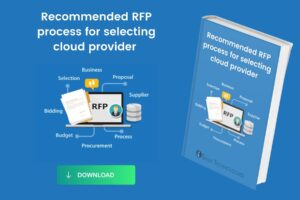In today’s digital landscape, IT professionals play a crucial role in managing and optimizing data operations within organizations. DataOps has emerged as an essential practice that combines data management, collaboration, and automation to ensure efficient and reliable data operations.
This article explores the significance of DataOps training for IT professionals, providing insights into the principles, components, and considerations when choosing a training program.
Understanding DataOps for IT Professionals
What is DataOps?
DataOps is a methodology that combines data engineering, data integration, data governance, and data analytics to streamline and optimize data operations.
It aims to ensure the smooth flow of data across the organization, enabling faster and more reliable decision-making. DataOps emphasizes collaboration, automation, and continuous improvement to drive efficiency and enhance data quality.
DataOps Benefits for IT Professionals
For IT professionals, DataOps offers several benefits:
- Streamlined Data Operations: DataOps provides a structured approach to manage data operations, ensuring efficient data integration, processing, and delivery. IT professionals can leverage DataOps principles to optimize data workflows and reduce manual effort.
- Enhanced Collaboration: DataOps fosters cross-functional collaboration among IT teams, data engineers, data scientists, and business stakeholders. By promoting effective communication and shared responsibility, IT professionals can work more efficiently and align data processes with business objectives.
- Improved Data Quality: DataOps emphasizes data quality and validation. IT professionals can implement data quality checks, data governance policies, and data validation techniques to ensure the accuracy, consistency, and reliability of data.
- Automation and Efficiency: DataOps encourages the automation of repetitive tasks and the use of orchestration tools. IT professionals can leverage automation frameworks to expedite data processes, minimize errors, and save valuable time and resources.
- Adaptability and Agility: With DataOps, IT professionals can adapt to evolving data environments and technological advancements. They can stay updated with emerging tools and technologies, enabling them to respond quickly to changing business requirements.
The Need for DataOps Training
As data operations become more complex, IT professionals require specialized training in DataOps to effectively manage data workflows and processes.
DataOps training provides the necessary skills and knowledge to implement DataOps principles, leverage relevant tools and technologies, and ensure efficient data operations. It equips IT professionals with the expertise to handle data integration, automation, data governance, and data quality effectively.
Key Components of DataOps Training for IT Professionals
DataOps training for IT professionals covers various essential components:
DataOps Principles and Best Practices
Training programs introduce IT professionals to the core principles and best practices of DataOps. This includes understanding the importance of collaboration, automation, and continuous improvement in data operations. IT professionals learn how to align data processes with business goals, enhance data quality, and foster a data-driven culture within the organization.
Data Integration and Automation
Data integration and automation are crucial aspects of DataOps. Training focuses on data integration techniques, including data extraction, transformation, and loading (ETL) processes. IT professionals learn how to leverage integration tools, such as Apache Kafka, Apache NiFi, or cloud-based data integration services. They gain expertise in automating data workflows, leveraging workflow management tools like Apache Airflow or cloud-based automation platforms.
Data Governance and Security
Data governance and security are paramount in DataOps. Training programs cover data governance frameworks, data privacy regulations, and security best practices. IT professionals learn how to implement data governance policies, establish data access controls, and ensure data compliance. They understand the importance of data privacy, confidentiality, and ethical data handling.
Data Quality and Validation
Training programs emphasize the importance of data quality and validation in DataOps. IT professionals learn techniques for data profiling, data cleansing, and data validation. They gain an understanding of data quality metrics, data anomaly detection, and data validation methodologies. Training enables IT professionals to implement data quality checks and ensure data consistency and reliability.
DataOps Tools and Technologies
DataOps training familiarizes IT professionals with various tools and technologies used in DataOps. This includes data integration platforms, workflow management tools, data visualization tools, and cloud-based data services. IT professionals gain hands-on experience with relevant technologies and learn how to leverage them effectively in real-world scenarios.
Choosing the Right DataOps Training Program
To make the most of DataOps training, IT professionals should consider the following factors when choosing a training program:
Researching DataOps Training Options
Research various DataOps training options available. Look for reputable training providers, online courses, and workshops that cater specifically to IT professionals. Consider the curriculum, duration, delivery format, and the expertise of instructors. Read reviews and seek recommendations from peers to assess the quality and effectiveness of the training programs.
Assessing Training Curricula and Instructors
Evaluate the training curriculum to ensure it covers the essential components of DataOps relevant to IT professionals. Look for hands-on practice opportunities, real-world case studies, and interactive sessions. Assess the expertise and experience of the instructors, as their knowledge and guidance are crucial for a comprehensive learning experience.
Hands-on Practice and Real-world Scenarios
Choose a training program that offers practical exercises and real-world scenarios. Hands-on practice allows IT professionals to apply the learned concepts in a simulated environment. Real-world case studies provide insights into practical challenges faced in DataOps and how to overcome them effectively.
Certification and Continuous Learning
Consider training programs that offer certifications upon completion. Certifications validate the acquired knowledge and can enhance career prospects. Additionally, choose a training program that emphasizes continuous learning and provides access to updated resources, forums, or communities to stay connected with the evolving DataOps landscape.
Conclusion
DataOps training is essential for IT professionals to excel in managing data operations within organizations.
By acquiring a solid understanding of DataOps principles, developing proficiency in data integration, automation, data governance, and data quality, and gaining hands-on experience with relevant tools and technologies, IT professionals can effectively optimize data workflows and contribute to data-driven decision-making.
Choosing the right DataOps training program ensures comprehensive learning and equips IT professionals with the necessary skills to succeed in the dynamic field of data operations.





